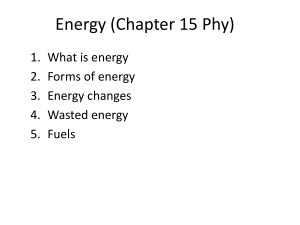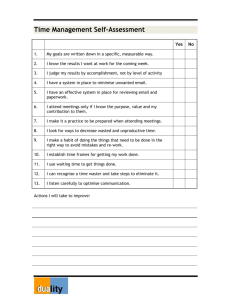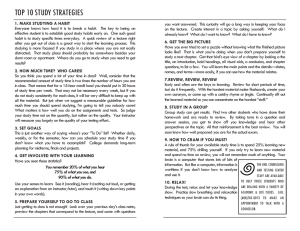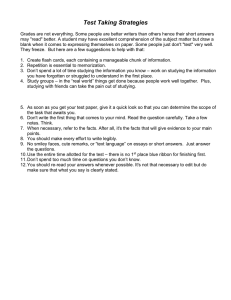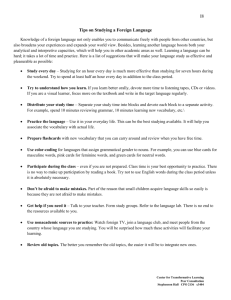Time Management
advertisement
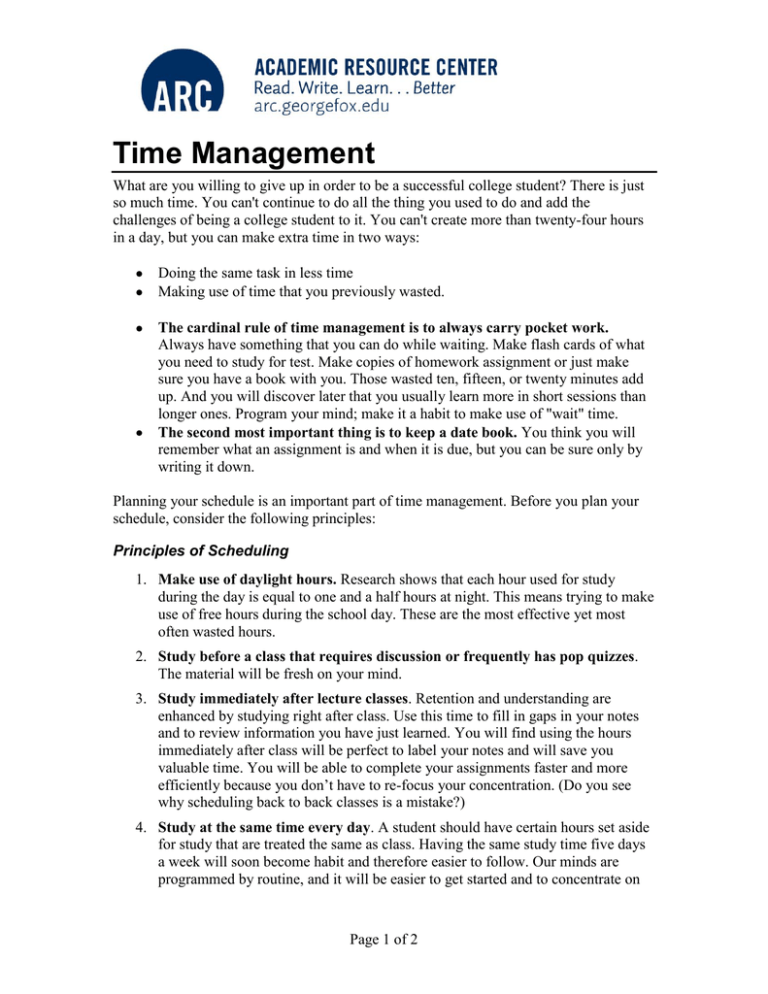
Time Management What are you willing to give up in order to be a successful college student? There is just so much time. You can't continue to do all the thing you used to do and add the challenges of being a college student to it. You can't create more than twenty-four hours in a day, but you can make extra time in two ways: Doing the same task in less time Making use of time that you previously wasted. The cardinal rule of time management is to always carry pocket work. Always have something that you can do while waiting. Make flash cards of what you need to study for test. Make copies of homework assignment or just make sure you have a book with you. Those wasted ten, fifteen, or twenty minutes add up. And you will discover later that you usually learn more in short sessions than longer ones. Program your mind; make it a habit to make use of "wait" time. The second most important thing is to keep a date book. You think you will remember what an assignment is and when it is due, but you can be sure only by writing it down. Planning your schedule is an important part of time management. Before you plan your schedule, consider the following principles: Principles of Scheduling 1. Make use of daylight hours. Research shows that each hour used for study during the day is equal to one and a half hours at night. This means trying to make use of free hours during the school day. These are the most effective yet most often wasted hours. 2. Study before a class that requires discussion or frequently has pop quizzes. The material will be fresh on your mind. 3. Study immediately after lecture classes. Retention and understanding are enhanced by studying right after class. Use this time to fill in gaps in your notes and to review information you have just learned. You will find using the hours immediately after class will be perfect to label your notes and will save you valuable time. You will be able to complete your assignments faster and more efficiently because you don’t have to re-focus your concentration. (Do you see why scheduling back to back classes is a mistake?) 4. Study at the same time every day. A student should have certain hours set aside for study that are treated the same as class. Having the same study time five days a week will soon become habit and therefore easier to follow. Our minds are programmed by routine, and it will be easier to get started and to concentrate on Page 1 of 2 the task at hand. Studying in the same place also aids concentration. If you have family responsibilities, it’s best to schedule your study time while you are on campus if at all possible. There are just too many things to interfere at home. You can schedule study time on campus just as if it were a class. 5. Plan enough time to study. The rule of thumb that you should study two hours for every hour you are in class is only a guide. Depending on your background or experience or the difficulty of the class, you may need to allow more time. Start out by allowing two hours, but adjust according to your need. 6. Space study periods. Fifty to ninety minutes at a time for each subject is probably most efficient. You should then take a break for ten to fifteen minutes. Studying for longer periods of time often becomes counterproductive. 7. List activities according to priorities. By putting first things first, you will get the most important things done on time. 8. Study during your prime time. We all have daily cycles of sluggishness and alertness. If your work, classes and circumstances permit, make use of this knowledge. Schedule your hardest subject at your most alert time. During the day, when you are less productive than you’d like to be, schedule less demanding tasks. 9. Leave unscheduled time for flexibility. Packing your schedule with too many details will almost assure your failure. Lack of flexibility is the major reason why students don’t follow schedules. 10. Analyze your use of time. One cause of getting behind in college is failure to make use of short periods of time. By keeping a time log, you can see where you are currently wasting time. As we have said previously, the time between classes and during the school day is the time which is most often wasted, even though it is the most efficient time to use for studying. Your time log may reveal a waste as simple as not responding to your alarm clock the first time or napping in the afternoon after classes. Middle Tennessee State University, Study Skill Course
